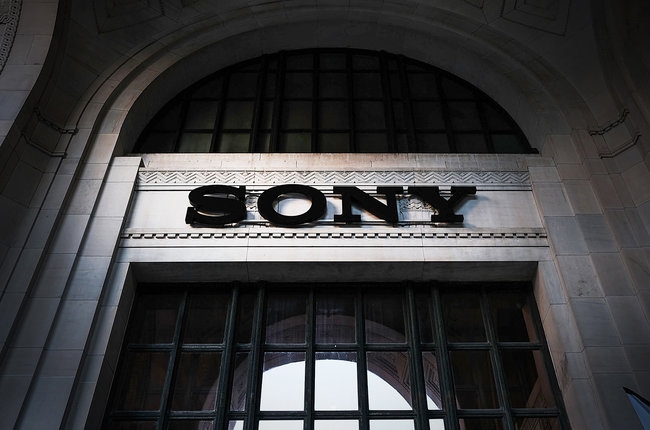The sudden, unexplained exit of veteran label executive L.A. Reid from Sony Music Entertainment jolted the music industry Thursday, given Reid’s turnaround in recent years of Sony’s Epic Records -- the label behind what is currently the No. 1 song on the Hot 100, DJ Khaled’s “I’m the One.”
While insiders say they had anticipated Reid’s departure amid a recent regime change at Sony, the move still leaves Sony’s new chief Rob Stringer with some big holes to fill, just over a month into his tenure in the top job. Vacancies at two of Sony’s three biggest labels include the post at Epic, where Reid had served as chairman and CEO since 2011, as well as the lead role at Sony’s flagship Columbia Records, which Stringer has been presiding over for years as it has churned out monster albums by stars from Adele to Beyoncé.
Sony also lost a singular leader for its international division after Edger Berger -- Sony Music International’s former chairman and CEO -- departed in January after six years on the job. But a source inside the company chalks Berger's exit up to corporate restructuring, saying the position was a relic of an outdated industry model that had the effect of creating a middleman between top Sony Music brass and the heads of its major territories, who will now report directly to Stringer.
Meantime, with Reid having been among the few black executives running labels at major record companies, his departure decreases the diversity among Sony’s top executive ranks at time when hip-hop is becoming more important to the industry than ever, thanks to the genre’s soaring popularity on streaming services worldwide. During his tenure at Epic, Reid significantly bolstered the label's hip-hop roster, bringing in artists such as Future, Khaled, Rick Ross, Travi$ Scott and Diddy's Bad Boy Records imprint, among others.
Sony has been heavily outspending competitors to win marquee talent in recent years, winning a bidding war that sources characterized as particularly competitive in its deal to sign Harry Styles, for example. But several prominent Sony executives have left the company over the past few years, including former Columbia president Ashley Newton, who departed to join former Columbia co-chairman Steve Barnett at Capitol; Mat Vlasic, who departed as head of Sony's merchandising division to take over as CEO of UMG's Bravado; and Ole Obermann, formerly EVP of digital partner development and sales at Sony, who joined Warner Music Group.
Sony has countered -- bringing in Jason Iley from Mercury U.K. as head of Sony Music U.K. and luring 19-year Republic veteran Tom Mackay as president of Sony's newly-created music, film & television A&R operations, as well as incorporating former indie label Ministry of Sound into RCA U.K. -- but Sony’s competitors have stepped up their efforts to poach its talent in recent weeks, sources tell Billboard, encouraged by the upheaval. Sources tell Billboard Stringer's camp has put out feelers seeking a replacement for at least one other veteran executive as well.
Reid's exit follows former Sony chief Doug Morris’ announcement late last year that he would cede the top job to Stringer and stay on as chairman. Morris -- known for inspiring and rewarding loyalty throughout his long career -- had a deep professional history with Reid dating back to their time at Universal Music Group, where Morris hired Reid to run Island Def Jam in 2004. After Morris took the helm at Sony and put Reid in charge of Epic in 2011, Reid signed star acts including Meghan Trainor, Fifth Harmony and Mariah Carey while landing No. 1 albums with Future, DJ Khaled, Travi$ Scott and a reunited Tribe Called Quest over the past 12 months.
Despite a shaky start at Epic, which Reid later attributed to doing double duty as a host on the TV show The X Factor through 2012, Reid grew Epic’s market share each year since 2014, with share up again through early May 2017, according to Nielsen Music. But despite a string of chart-topping albums and hit singles, sources tell Billboard Reid often spent more than the successes brought in, with his big-spending reputation stretching back nearly two decades, highlighted by an ill-fated $100 million multi-album deal he inked with Whitney Houston while head of Arista in 2001. But Epic has been profitable over the past 12 months, sources tell Billboard, with an operating income margin of more than 10 percent.
While it’s not clear who will fill the big label jobs, Stringer has been building out some of his new executive team from within, announcing in February that EVP/CFO Kevin Kelleher would be promoted to COO and promoting Carmine Coppola to fill Kelleher's role as EVP/CFO. Both executives have spent more than 20 years at Sony. Stringer's run of success at Columbia with artists such as One Direction and The Chainsmokers, meantime, is unlikely to slow down even if he's not running the label's day-to-day operations, with a debut solo Harry Styles album freshly available, while Sony’s RCA rode into 2017 with a No. 1 album from Pentatonix and has a sophomore release from Zayn in the works, alongside a roster of promising new signees.
Sony’s corporate structure has also seen big changes this past January with the departure of Sony head of Entertainment Michael Lynton who oversaw Sony Music and to whom Doug Morris reported. Stringer, unlike his predecessor, will report directly to Sony CEO Kaz Harai.
There’s some core stability: RCA is still run by longtime chairman/CEO Peter Edge and president/COO Tom Corson. Sony/ATV's Martin Bandier, 75, also remains at the helm of what’s been the world’s biggest publishing company for the last 19 consecutive quarters, signing a three-year contract extension last January.








